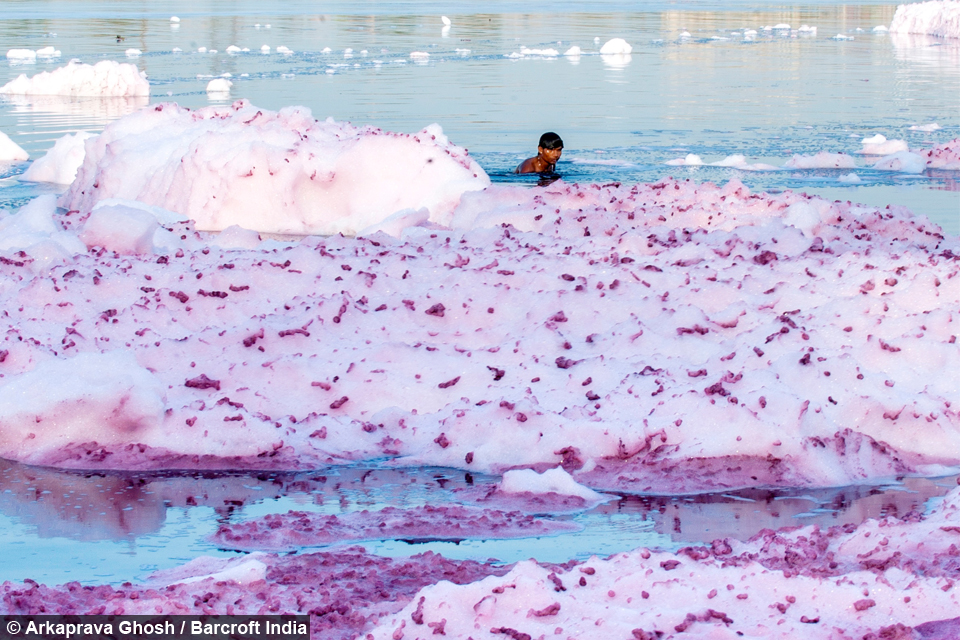Dirty Laundry: Locals Wash Clothes In Polluted Indian River
By Aamir Bashir @Aamir_Here
Scroll down for the full story
Hundreds of laundry workers – known as dhobi’s – visit homes to collect the soiled garments and wash them in one of India’s most toxic rivers.
But despite the water’s contamination, the trade is a valuable business for the poor workers in the industrial neighbourhood of Okhla, on the outskirts of Dehli.
Mohammad Yunus said: “We come here at around four in the morning. We use the water of the river to wash the clothes and then we let them dry here. This is how we make our living."
Mr Yunus added: “We know the water here in the river isn't clean. But we believe that washing in it isn't too harmful. We use soap and other detergents.”
The washermen clean the vibrant clothes in the murky water and dry them in bulk on the muddy banks.
A shirt can be washed and ironed for a little as 10p and workers earn just £4 a day.
The Yamuna river, which is one of the tributaries of the Ganges, is overflowing with sewage, industrial waste and chemicals such as fertilisers and pesticides.
Vijay Kumar, who has been a dhobi for ten years, said: “We collect unwashed clothes and other articles from across the city and bring them here. They are then washed. We dry them up in the open here.
“"Delhi is a congested city. There are few open spaces here. This river bed is the best and only place we have.”
But work along the riverbank is beginning to dry up as washing machines become more prevalent.
Many washermen switch to other jobs after they are done washing in the morning.
Mr Yunus said: "It is hard to sustain on just doing this. So some of us pull rickshaws and do some other work through the day.”










